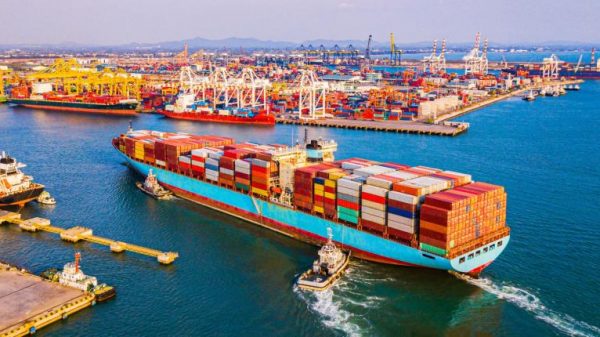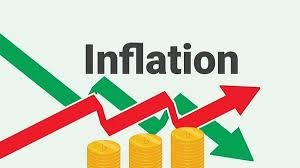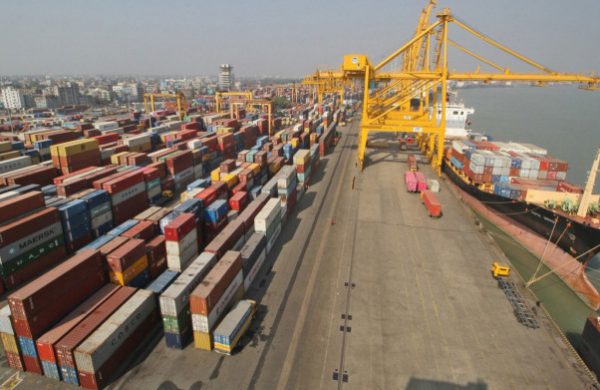Import controlling impact falls on private loan
- Update Time : Tuesday, November 8, 2022

Swarnomoyee Mostafa Oishy
The country’s economy has started to get the result of controlling imports. The central bank’s decision to curb inflation and prevent the reduction of foreign exchange reserves has had an impact on the economy.
As a result of various policies taken to reduce imports last September, the import of goods has decreased by about 14 percent. In addition to this, the rate of bank deposits has decreased. Such information has come to the light through the updated report of Bangladesh Bank.
This year, the amount of import increased suddenly. Due to this, the deficit of import and export trade in the financial year exceeded the previous record. The balance of payments deficit rose to $33 billion in the 2021-22 fiscal year. Due to these reasons, Bangladesh Bank has made the import policy difficult. As a result, the import gradually decreases. As a result of this, the private sector credit growth fell to 13.93 percent in September. But last August too, private sector credit growth was 14.07 percent.
According to Bangladesh Bank stakeholders, interest rates on bank deposits were low compared to inflation in August and September this year. Apart from this, the service charge of the bank is deducted in various ways. As a result, there is not much profit in the deposit. Because of this, people are not keeping money in banks now. On the other hand, its investment has been limited by various conditions including reducing the interest rate of savings bonds. As a result, investment in savings bonds is not being made as before. Apart from this, the tendency to withdraw deposits has increased for rising costs due to inflation. Because of this, the bank deposits have also been strained.
According to the report of Bangladesh Bank, compared to September of this year, loans to the private sector are 13.93 percent higher than in the same period of the previous year. In other words, in September this year, private sector entrepreneurs have reduced borrowing from the bank sector. However, the loan growth in August this year was higher than the previous year. Private sector borrowing was 14.07 percent higher in August 2021.
According to the information obtained from the report, the outstanding debt status in the private sector stood at Tk 13,79,413 crores in September this year, which was Tk 12,10,722 crores in the same period last year. And in August this year, it was Tk 13,62,477 crores.
Regarding the overall situation, Bangladesh Bank officials expressed relief that, the supply of money in the economy has decreased.
Seeking anonymity, a high-ranking Bangladesh Bank official said, “Private entrepreneurs in Bangladesh are usually involved in import and export. Most of the loans provided by the banking sector are spent on importing various products. The traders of the country have to import raw materials from other countries for the amount of goods they export. Apart from this, a large part of the imported goods in the country used to be luxury goods. Central bank reserves tighten import policy to reduce crisis. The result of which is now the economy.” Meanwhile, the private sector credit growth in this September is said to be less than the estimate made by Bangladesh Bank. In the monetary policy announced by Bangladesh Bank for the current financial year 2022-23, the target of credit growth in the private sector is set at 14.10 percent. It was estimated at 14.80 percent in the previous financial year. Although the private sector credit growth in the last financial year was much lower than the estimated rate. The growth in private sector credit in August last year was close to the monetary policy target. But in September, that growth slowed further.
Former governor of Bangladesh Bank Saleh Uddin Ahmed said, “The policy adopted by Bangladesh Bank in the matter of import was supposed to be like this. Bangladesh Bank also seems to have wanted something like that. As inflation increases, imports also increase. As a result, the reserve is damaged. The move to reduce unnecessary imports to maintain reserves was appropriate and worked. This is also the reason for the decrease in the amount of loans in this sector in September.”
The economist also said, “Countries like Bangladesh have nothing to do with inflation caused by international causes. There is only one thing to do then, and that is to reduce the use of money in the market. This work has been done to reduce imports. People are now buying less luxury goods. Not spending unnecessarily. Hence the trade of private sector entrepreneurs has decreased. Less trade requires less credit. So there is nothing to worry about.”
Another report of the Central Bank published recently shows that, in September of this year, LCs worth 5.7 billion dollars were opened for the import of various products. Compared to the previous month of August, which is 630 million dollars or about 10 percent less. Import LC settlements in September also fell by 18 percent to $6 billion from the previous month. In the previous month of August, the settlement of import LCs was $7.33 billion. Apart from this, both LC opening and settlement have decreased compared to the same period last year. Apart from this, the highest trade deficit occurred in the last financial year due to the fact that imports were more than exports. The trade deficit was 33.25 billion dollars.
According to the report given by Bangladesh Bank, the growth of private sector credit exceeded 11 percent in January this year. But it later declined due to the Russia-Ukraine war.
In February this year, the growth in this sector decreased to 10.72 percent. In the following month it increased slightly again. It stood at 11.29 percent in March. After that, the debt growth continued to increase. Increasingly, the growth of private loans in July stood at 13.95 percent.
























